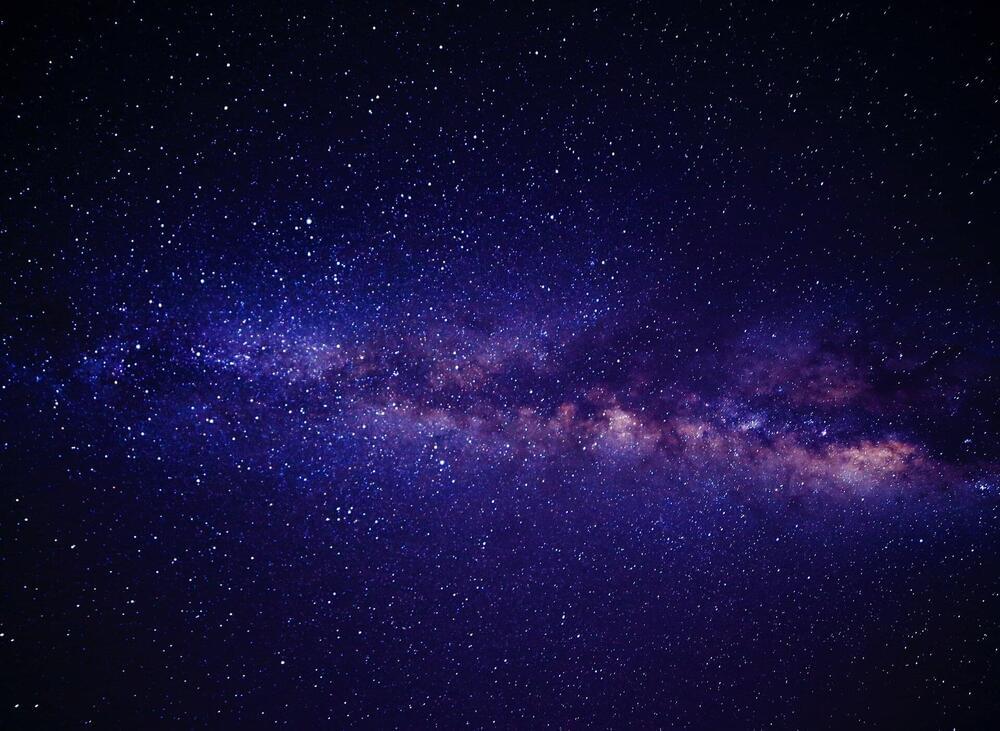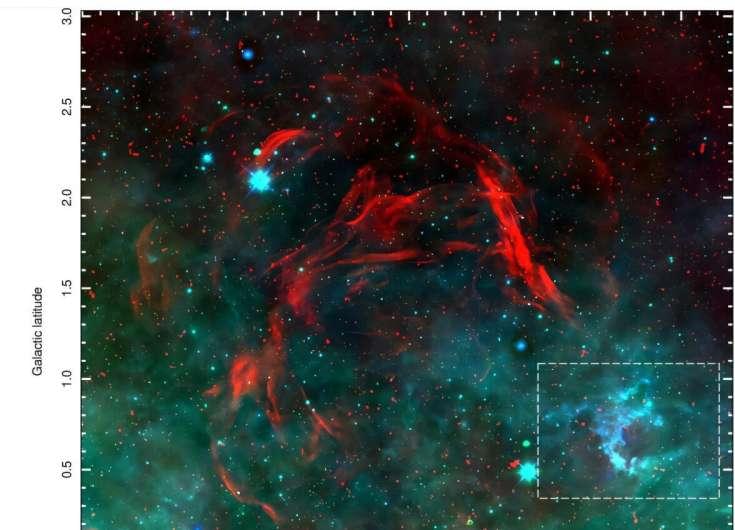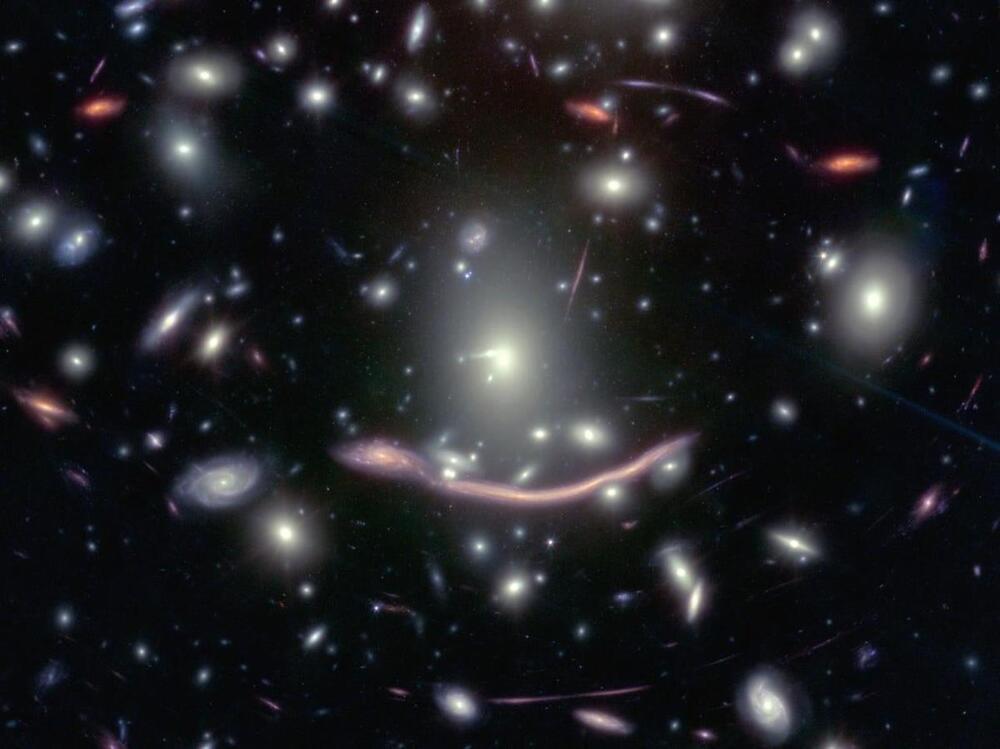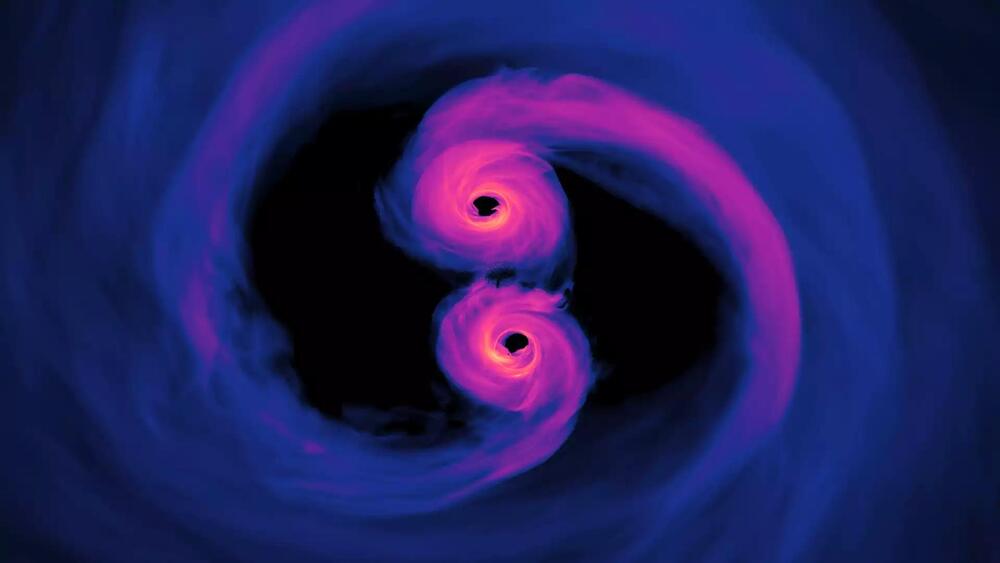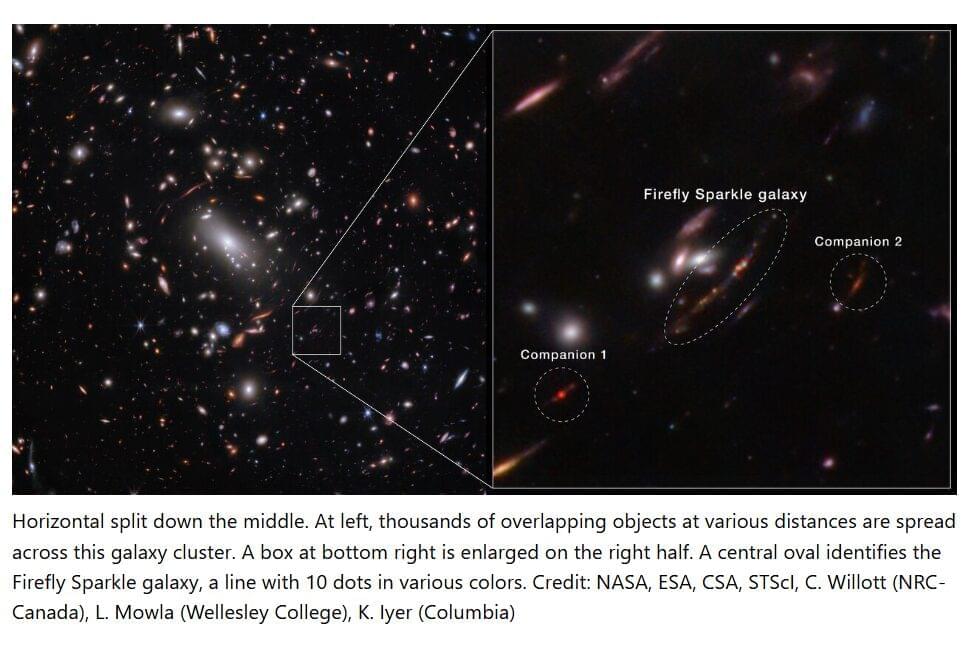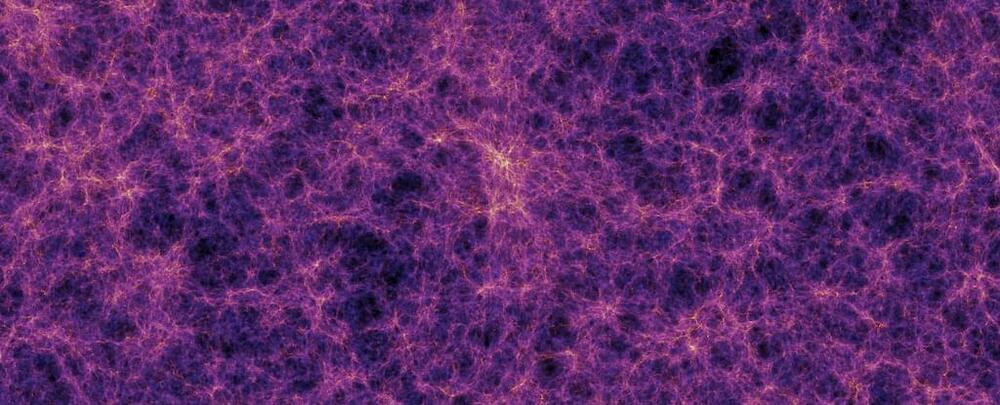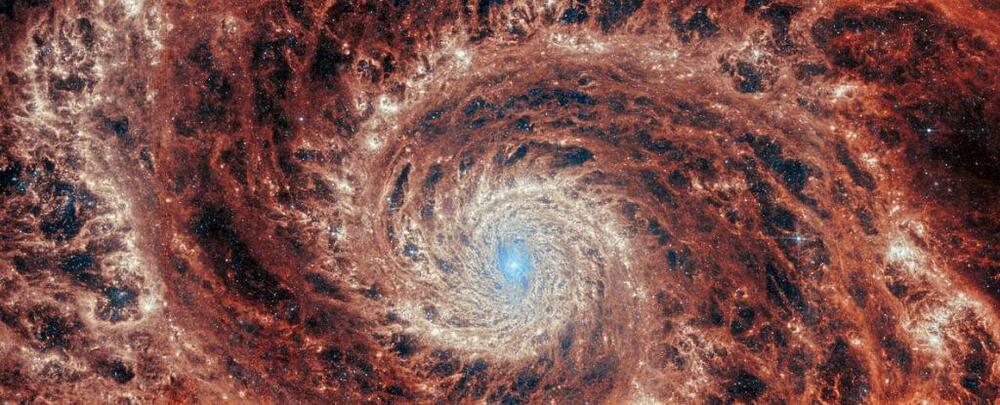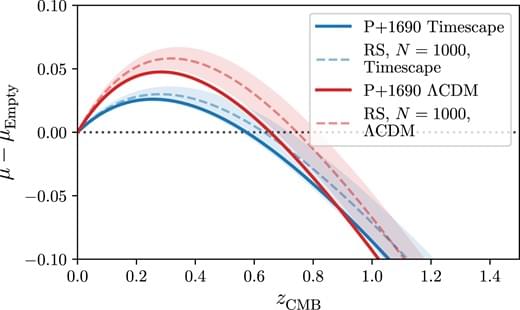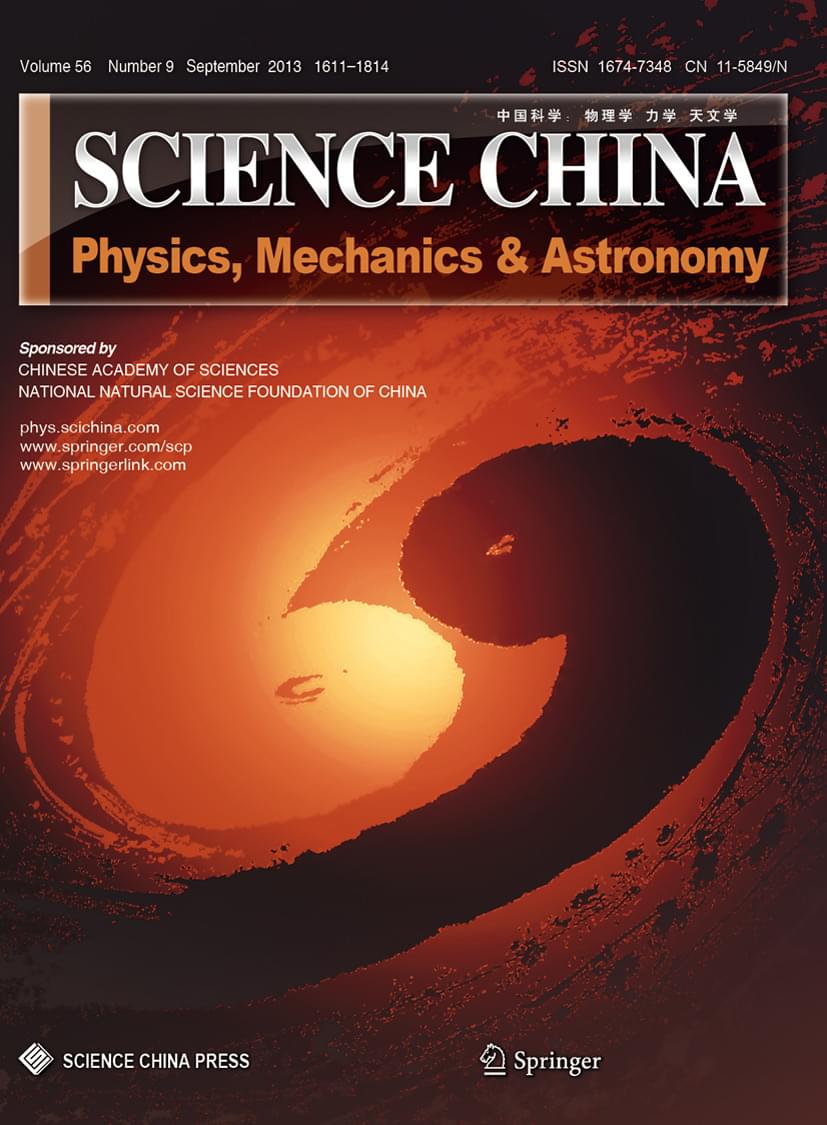Physicists have proposed a solution to a long-standing puzzle surrounding the GD-1 stellar stream, one of the most well-studied streams within the galactic halo of the Milky Way, known for its long, thin structure, and unusual spur and gap features.
The team of researchers, led by Hai-Bo Yu at the University of California, Riverside, proposed that a core-collapsing self-interacting dark matter (SIDM) “subhalo” — a smaller, satellite halo within the galactic halo — is responsible for the peculiar spur and gap features observed in the GD-1 stellar stream.
Study results appear in The Astrophysical Journal Letters in a paper titled “The GD-1 Stellar Stream Perturber as a Core-collapsed Self-interacting Dark Matter Halo.” The research could have significant implications for understanding the properties of dark matter in the universe.
